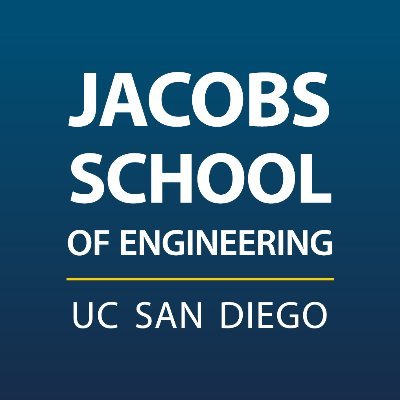News

November 2, 2018
Bioengineers awarded $14M from NIH to build digital maps of brain, other organs at single-cell level
Kun Zhang, professor of bioengineering at the University of California San Diego Jacobs School of Engineering, has received $14 million in grants from the National Institutes of Health to build 3D, digital single-cell maps of the human brain and organs in the respiratory and urinary systems. The work aims to provide a deeper understanding of the functions and malfunctions of organs in the human body at the level of individual cells. Full Story

October 26, 2018
UC San Diego Signs MOU with Foundation for Biomedical Research and Innovation at Kobe
The University of California San Diego and the Foundation for Biomedical Research and Innovation at Kobe (FBRI) have entered into a five-year memo of understanding (MOU). The MOU was announced Oct. 19, 2018 in Japan at the 20thanniversary celebration of the Kobe Biomedical Innovation Cluster, of which FBRI is the core research institute.The MOU affirms a shared interest between UC San Diego and FBRI in cooperative biomedical research that will include joint research projects and publications, co-hosting seminars and workshops, and site visits. The primary contacts for the MOU are Dr. Shu Chien for UC San Diego and Dr. Ryuji Hiramatsu for FBRI. Full Story

October 25, 2018
Machine learning identifies antibiotic resistance genes in tuberculosis-causing bacteria
Researchers have trained a machine learning algorithm to identify and predict which genes make infectious bacteria resistant to antibiotics. The approach was tested on strains of Mycobacterium tuberculosis—the bacteria that cause tuberculosis (TB) in humans. It identified 33 known and 24 new antibiotic resistance genes in these bacteria. The approach could be used to predict resistance in other infection-causing pathogens. Full Story

October 1, 2018
Four researchers recognized for innovative and transformative work by NIH
Three researchers at the University of California San Diego have been selected to receive 2018 NIH Director’s New Innovator Awards. In addition, David Traver from the UC San Diego School of Medicine, has received an NIH Director’s Transformative award. Full Story

September 19, 2018
Engineering graduate students selected as Siebel Scholars
Five Jacobs School of Engineering graduate students working to improve immunology, cardiac health, blood transfusions and our understanding of the genome have been named 2019 Siebel Scholars. The Siebel Scholars program recognizes the most talented students in the world’s leading graduate schools of business, computer science, bioengineering and energy science. Full Story

September 6, 2018
UC San Diego clinician-engineer teams selected as 2018 Galvanizing Engineering in Medicine awardees
Four clinician-engineer teams from UC San Diego have been selected to receive the 2018 Galvanizing Engineering in Medicine (GEM) awards. GEM, an initiative of UC San Diego Altman Clinical and Translational Research Institute (ACTRI) and UC San Diego Institute of Engineering in Medicine (IEM), brings engineers and clinicians together to develop innovative technologies that can be applied to solving challenging problems in medical care. This year’s projects address challenges in the areas of urology, telerobotic surgery, oncology, and spinal cord injuries. Full Story

August 22, 2018
Scientists discover a destructive mechanism that blocks the brain from knowing when to stop eating
An international team of researchers has uncovered a destructive mechanism at the molecular level that causes a well-known phenomenon associated with obesity, called leptin resistance.They found that mice fed a high-fat diet produce an enzyme named MMP-2 that clips receptors for the hormone leptin from the surface of neuronal cells in the hypothalamus. This blocks leptin from binding to its receptors. This in turn keeps the neurons from signaling that your stomach is full and you should stop eating. This is the first time that a destructive molecular mechanism has been observed and described. Full Story

August 17, 2018
Bioengineers receive $12M grant from NIH to further research on building blocks of human metabolism
The University of California San Diego has received a $12 million, four-year grant from the National Institutes of Health to expand the Metabolomics Workbench, a searchable, interactive repository of data for all research in the field of metabolomics—the study of the small molecules called metabolites that are found within cells and biological systems. The Metabolomics Workbench project, led by bioengineering professor Shankar Subramaniam at the Jacobs School of Engineering at UC San Diego, launched in 2012 with a $6 million grant from the NIH. This new infusion of funds will allow Subramaniam and colleagues to add a wide range of clinical data to the Workbench and take the project into the clinic itself. This in turn will allow researchers and physicians to develop better tools to diagnose diseases through metabolite markers in blood. Full Story

July 31, 2018
Medical mist could fight hospital-acquired infections
A team of engineers and physicians in San Diego have developed a device that diffuses potent disinfectants for airborne delivery. Notably, the device works on a range of disinfectants that have never been atomized before, such as Triethylene glycol, or TEG. In a study published in the August issue of Applied Microbiology and Biotechnology, the team used the device to atomize disinfectants onto environmental surfaces contaminated with bacteria and showed that it effectively eliminated 100 percent of bacteria that commonly cause hospital-acquired infections. In addition, atomized bleach solution, ethanol and TEG completely eliminated highly multi-drug resistant strains of bacteria including K. pneumoniae. Full Story

July 23, 2018
UC San Diego bioengineers bring functional genomics data into personal websites
Bioengineers at the University of California San Diego have developed a programming library that can enable researchers to effortlessly visualize and share genomic data on their personal websites. The new open source programming library, named “GIVE” (genomic interaction visualization engine), can be used by non-experts and in many cases even eliminates the need to write any computer codes. Full Story
